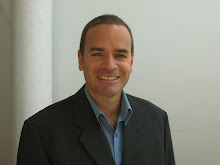The reality is, we all have days that are a bit dull. I
don’t mean that in a negative sense – just that they are ordinary.
As director of MOCLAM I have days like that. Days when I
just need to do the basic work of preparing classes, marking exams etc.
The last few days have not been those dull days.
For the last few days I’ve been travelling around a large
island in the Caribbean that starts with C but can’t be named for security
reasons. In 4 days of pre-dawn starts and late night finishes, I’ve driven
2000km on roads that varied from quite good to “is this actually a road?”. I’ve
witnessed great joy and enthusiasm for God’s word in circumstances that many of
us would find very difficult to tolerate, let alone be joyful in. And I’ve had
the opportunity to witness the hunger for God’s word that occurs in a country
where resources, including theological education resources are scarce.
The purpose of the trip was to visit many of the centres in
which MOCLAM has students, to meet the group leaders, to present certificates
to those who have completed their studies, and to encourage those who are still
going.
It has been en encouraging, invigorating, edifying and
humbling experience.
In 7 different locations I presented around 80 certificates,
many of which were Certificates of Theology (ThC), awarded to those who have
completed 18 subjects. To have the opportunity to meet students whose exams I
have been marking for several years, and to hear them testify in front of their
friends and family how the courses of MOCLAM have changed the way they minister
was a rare privilege.
Each of the 7 groups was different. Some were meeting in
large cities and denominational churches. Others, in small house groups. I met
with one group who is in the process of planting 200 house churches across the
central part of the island, as well as sending missionaries to other
Spanish-speaking countries.
The most isolated group required us to drive 5 hours along
beachside tracks and then eventually into a high mountain area, isolated from
the most basic of services and facilities. Here the local pastors meet together
for 5 days of intensive teaching from a MOCLAM tutor, and they are full of
rejoicing that someone has bothered to come and help them, because their
isolation means that any sort of theological education or training is virtually
impossible.
The trip reinforced in my mind the great strength of MOCLAM.
We are providing theological training resources that can be used in all sorts
of contexts by all sorts of people.
But it also taught me something which I’d had an inkling of
for a while, but is now confirmed in my mind. In this place we have a network
of tutors who teach intensive courses in different locations. Over the last 5
years I have got to know each of these tutors individually, as well as a group
and they have taught me that one of the key elements of theological education
is relationship. They work together as a family, and it is clear from the
testimony of the students that they treat their classes as a family
conversation. Yes, there are things to be learnt, books to be read and exams to
be done - but this happens in the context of a family relationship. And when
the class is finished for the day, the family conversation continues as church
matters and personal issues are discussed.
MOCLAM is not only providing a great theological training
resource, but it is a mechanism by which pastors and church leaders are being
supported in their often isolated and difficult work.
Why am I telling you about my “not at all dull” days?
Because many people who read this are our supporters through
CMS, and I want you to share in the encouragement that I received in the last
few days. It is because of your support that I can lead MOCLAM in this and other
countries. Humanly speaking, without CMS supporting us in this ministry, none
of this would be happening.
So thank you for your support.
I also want to share with you this experience, because it
shows the value of long-term missionary investment. I have lost track of how
many time I have been to this country – but it is more than a dozen since
August 2009. As a result of this long-term investment in the relatively
unspectacular work of teaching classes and producing resources, we are now
seeing some profound fruit. In a world that is often dominated by the desire
for “facebook-able” results and measureable (and preferably instant) KPIs , it
is easy for theological education and training to seem slow – because it is.
The shaping of people is like that.
But when the time is taken, the results can be profound, as
my last few days have seen.
And so I ask you to keep on supporting this ministry,
because the reality is, it is fragile, and needs our continuing support.
